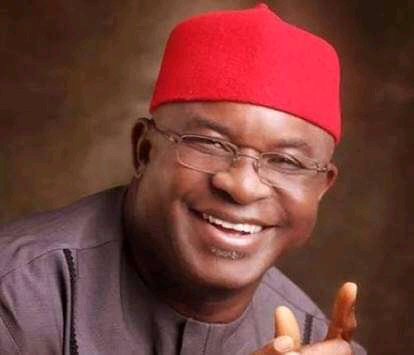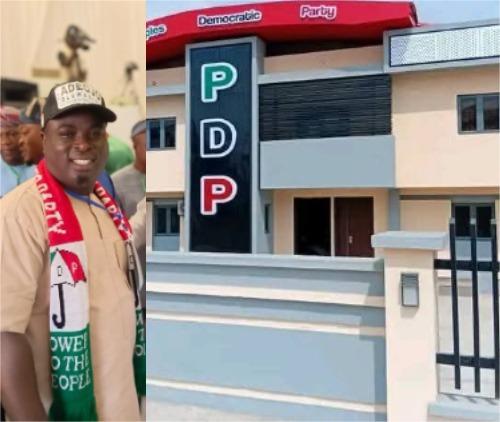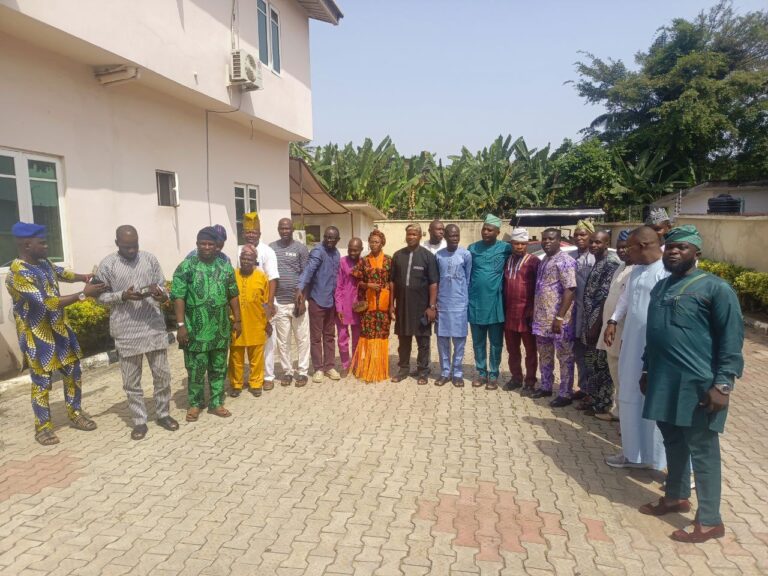
The ranks of Nigeria’s Peoples Democratic Party, PDP, have been dealt a major blow as former Senate President, Senator David Alechenu Bonaventure Mark, has formally announced his resignation from the party, citing persistent internal crises, unresolved leadership issues, and deepening divisions within the party’s structure.
Senator Mark’s resignation was contained in a letter dated June 27 and addressed to the Chairman of the PDP in his Otukpo Ward, Benue State. The letter, now in circulation of the media, confirms his exit from a party he helped to build, guide, and defend through some of its most turbulent political years.
In the letter titled “Notice of Resignation from the PDP,” the former Senate President conveyed his decision with what appeared to be deep personal regret, expressing dismay at what the PDP has become in recent times. He noted that the party, which once served as a beacon of hope for democracy in Nigeria, has now been reduced to what he described as “a shadow of its former self,” weakened by infighting, unresolved leadership disputes, and irreconcilable internal conflicts.
According to Senator Mark, the PDP has lost its ability to provide credible opposition or direction, exposing it to public ridicule and political irrelevance.
Quoting from the letter, Mark wrote:
“I bring warm greetings to you and members of the Peoples Democratic Party (PDP), Otukpo Ward 1, and by extension, to the entire Benue State and Nigeria. I write to formally inform you of my decision to resign my membership of the party with immediate effect.
“Over the years, I have remained firm and deeply committed to the ideals of the PDP. Even when nearly all stakeholders departed the party following our loss in the 2015 presidential election, I pledged to remain the last man standing.”
The former Senate President, who represented Benue South Senatorial District from 1999 to 2019, was known for his loyalty to the PDP, serving as one of its most consistent and influential figures since the return of democracy in 1999. He is widely respected for bringing relative stability to the Senate during his eight-year tenure as President of the Red Chamber from 2007 to 2015.
During his time in the National Assembly, Mark played a critical role in legislative reforms and party cohesion, especially during periods when the PDP faced internal rebellion and external threats. His commitment to the party was particularly evident after the 2015 general elections, when the PDP lost power at the federal level for the first time since 1999. While many of his contemporaries decamped to the ruling All Progressives Congress, APC, Mark chose to remain, earning him the nickname “the last man standing.”
However, according to his resignation letter, the current state of the PDP no longer aligns with the principles and values he once defended.
He wrote:
“Despite my efforts to rebuild, reconcile, and reposition the party, recent events marked by deepening divisions, persistent leadership crisis, and irreconcilable differences have reduced the PDP to a shadow of its former self, subjecting it to public ridicule.
“After wide consultations with my family, friends, and political associates, I have resolved to join the National Coalition of Political Opposition Movement in Nigeria, as part of the collective effort to rescue our nation and preserve our hard-earned democracy.”
The National Coalition of Political Opposition Movement, according to political observers, is a strategic alliance of political leaders, civil society groups, technocrats, and former public office holders seeking to present a credible alternative to both the ruling APC and the weakening PDP. The movement, which is yet to be formally launched, aims to galvanize opposition forces and build a broad-based platform for national renewal.
In a significant development, reports emerging on Tuesday suggest that both Senator David Mark and former Osun State Governor, Rauf Aregbesola, have been appointed as interim National Chairman and interim National Secretary, respectively, of the emerging political platform. The coalition is expected to operate under the structure of the African Democratic Congress (ADC) as part of a broader rebranding and repositioning strategy ahead of the 2027 general elections.
The involvement of two political heavyweights — one from the PDP and the other from the APC — signals what many analysts believe could be a major realignment in Nigeria’s political landscape.
Senator Mark’s departure is already generating reactions from party loyalists, political commentators, and the general public. For the PDP, it marks the exit of one of its most respected elders and a symbol of institutional memory. For the opposition coalition, it represents a strategic gain and a boost in credibility as it prepares to unveil its agenda and leadership structure.
Political watchers believe this move could trigger further defections, especially among disenchanted politicians across the two dominant parties, particularly as the country prepares for another round of elections.
Senator David Mark’s decision comes at a time of heightened political uncertainty, rising public discontent, and growing calls for a political alternative capable of delivering good governance and restoring public confidence in Nigeria’s democracy.





